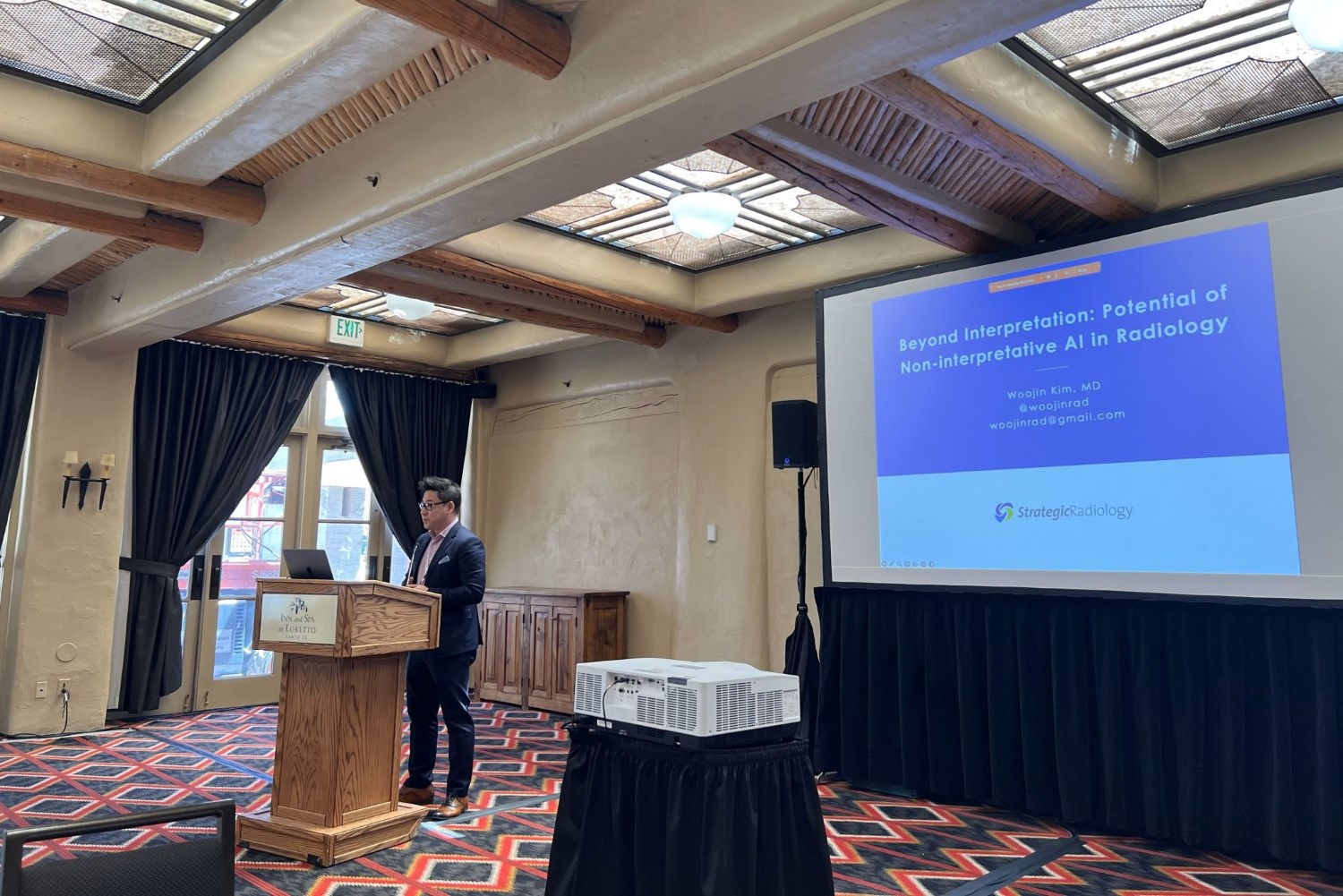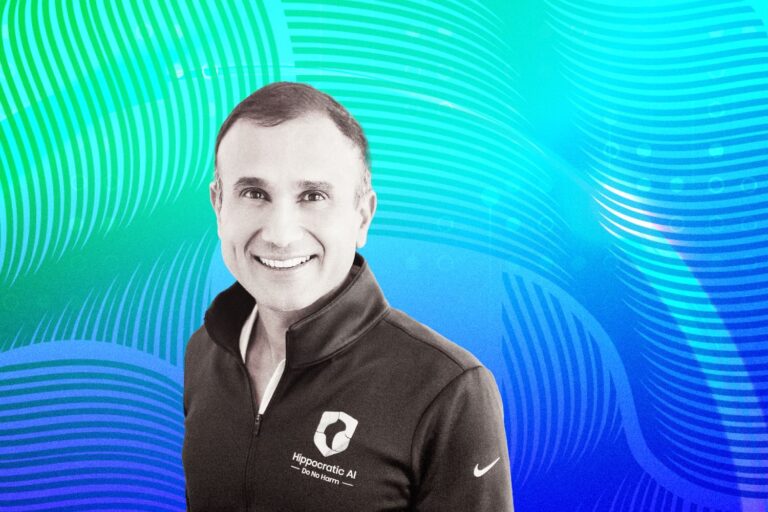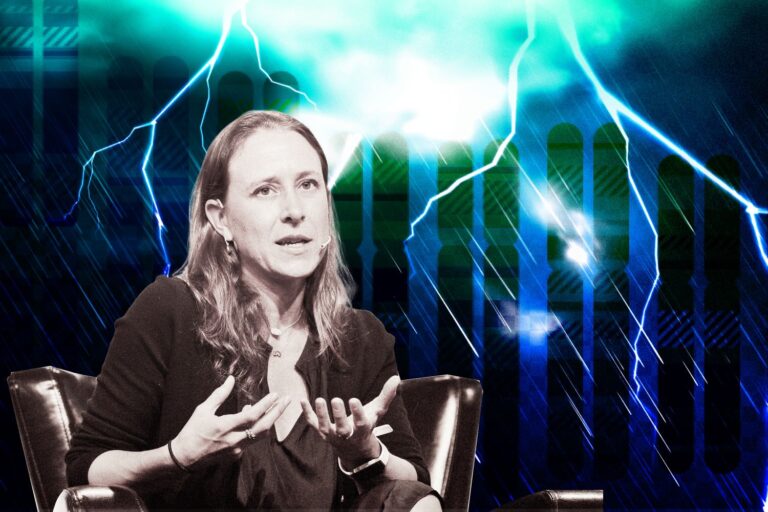Revolutionizing Medical Imaging: How Rad AI is Changing the Game
The medical imaging industry has seen tremendous growth in recent years, driven by advancements in technology and increased demand for diagnostic tools. According to a report by Grand View Research, the global medical imaging market size was valued at USD 28.02 billion in 2021 and is expected to expand at a compound annual growth rate (CAGR) of 4.9% from 2022 to 2030.
As the demand for medical imaging continues to rise, there has been a growing need for technologies that can improve the accuracy and efficiency of medical imaging diagnoses. This is where Rad AI comes in.
With their expertise in both healthcare and technology, the Rad AI team was able to develop a powerful AI-powered medical imaging software that has the potential to revolutionize the way medical imaging diagnoses are made. Since its founding, Rad AI has quickly become a leader in the medical imaging scene, partnering with some of the world’s top hospitals and healthcare providers to improve patient care and outcomes.
At the Intersection of AI and Healthcare: The Story of Rad AI’s Success
Rad AI was founded in 2018 by Dr. Jeff Chang and Doktor Gurson. Dr. Chang is a board-certified radiologist who has read nearly a quarter of a million medical images over the past decade. He became the youngest radiologist on record in the United States after starting medical school at New York University at the age of 16.
He went on to complete his residency in diagnostic radiology at the University of California, San Francisco, and a fellowship in musculoskeletal MRI at Stanford University. Dr. Chang’s experience as an emergency room radiologist, as well as his exposure to the growing demand for medical imaging, made him aware of the limitations of traditional medical imaging interpretation and the need for innovation.
“I saw how AI could help me and other radiologists get through our work faster and more accurately, and also help with radiologist burnout. There were a lot of things that were interesting to me about AI, and I wanted to see if I could help create a tool that could help radiologists on a daily basis.” – he said.
Troubled by the worsening problem of radiologist burnout and the lack of assistive technology for radiologists, Dr. Chang decided to take action. He pursued graduate work in machine learning to identify ways in which AI could make radiologists’ lives better. It was during this time that he met Doktor Gurson, a serial entrepreneur with deep technology experience. Together, they recognized the potential for AI to revolutionize the medical imaging industry by acting as a virtual assistant for radiologists.

Inspired by this vision, Dr. Chang and Doktor Gurson founded Rad AI with the goal of creating AI-powered medical imaging software that could assist radiologists in analyzing medical images and provide actionable insights that could improve patient care and outcomes.
The company’s software deploys advanced machine-learning algorithms to assist radiologists in analyzing medical images and identifying potential medical issues. The software is designed to integrate with a radiologist’s workflow seamlessly, reducing interpretation time and allowing for faster and more accurate diagnoses.
Notably, the software can detect abnormalities such as fractures, tumors, and other medical issues that may be missed by traditional radiology methods. It can provide radiologists with additional information about the images, such as annotations and measurements, which can enable them to make a more informed diagnosis.
In fact, Rad AI’s AI-powered platform has been scientifically substantiated to improve radiologist efficiency and accuracy in analyzing medical images. In a study published in the Journal of the American College of Radiology, Rad AI’s technology was found to reduce interpretation time for chest X-rays by 33% while maintaining high accuracy levels.
In an interview with HealthTech Magazine, Dr. Jeff Chang stated, “Rad AI is transforming the way radiologists work by developing AI-powered tools that support faster, more accurate diagnoses. By reducing the time it takes to interpret medical images and providing additional insights, we can help radiologists provide better patient care and outcomes.”
The increased accuracy and efficiency of diagnoses provided by Rad AI’s software can lead to better patient outcomes and quality of life. The software helps ensure that patients receive the appropriate treatment and care they need, which can be particularly crucial in cases where timely diagnosis is essential for successful treatment.
Moreover, Rad AI’s technology has the potential to address the issue of radiologist burnout, which has become increasingly prevalent due to the growing demand for medical imaging and the increasing complexity of radiology cases. The software can reduce the workload of radiologists, allowing them to focus on more complex cases, which can lead to better patient care and outcomes.
“The workload for radiologists has increased dramatically, and the complexity of cases has increased as well. Rad AI is designed to take on some of the more mundane tasks and allow radiologists to focus on the more complex cases. By doing so, we can help reduce the workload and ultimately improve patient care.” Dr. Jeff Chang said.

The company has been featured in major media outlets, including Forbes, The Wall Street Journal, and TechCrunch, highlighting its potential to revolutionize the field of radiology. In addition, Rad AI has been recognized for its innovative technology and potential to improve patient care. In 2020, the company was named as a finalist for the “Best AI-based Solution for Healthcare” in the prestigious AI Breakthrough Awards.
According to a Forbes article published in November 2020: “Rad AI is a startup that has developed an artificial intelligence-powered software platform that helps radiologists more accurately read X-rays, CT scans and MRIs… the New York City-based company is taking advantage of the increasing availability of medical imaging data and the growth of AI technology to create a more efficient and accurate radiology workflow.”
Navigating Against Regulatory Hurdles: Rad AI to be On Track
“I’m really inspired by Bill and Melinda Gates and their efforts to provide improved healthcare and reduce extreme poverty across the globe, and to seek to expand access to education and IT resources,” shared by Dr. Jeff Chang. “This is what I think we should all be doing – helping to make our world a better place, contributing our resources and time to reduce inequality and provide opportunities to more of our fellow human beings.”
Founding a startup, particularly in the healthcare sphere, can be a challenging endeavor. There are numerous hurdles to overcome, including obtaining funding, navigating regulatory requirements, and commercializing a viable product. For Rad AI, these challenges were particularly pronounced due to the technical complexity of their software and the stringent regulatory requirements for medical devices.
In a 2020 interview with Forbes, CEO Jeff Chang discussed some of the challenges the company faced in its early stages. Chang explained: “One of the biggest challenges in developing our software was navigating the regulatory environment in healthcare. The rules around software development in healthcare are complex and constantly evolving, and we had to build a team with expertise in both healthcare and technology to help navigate these challenges.”

Additionally, the company faced difficulties in obtaining funding in its early stages. “Healthcare is a challenging space to raise capital in because of the regulatory complexity and long development timelines. We had to pitch to a lot of investors to find the right ones who understood the healthcare space and believed in our vision.”
However, CEO Jeff Chang also noted that the company was eventually able to secure funding from a variety of sources, stating that “we were fortunate to find investors who were willing to take a chance on us, including venture capital firms and angel investors who saw the potential impact of our technology.”
To navigate the regulatory requirements and technical complexity of developing their software, Rad AI’s founders built a team with diverse expertise in healthcare and technology. In an interview with Forbes, Jeff Chang emphasized the importance of building this team, stating that “we’ve had to build a team that’s highly knowledgeable in healthcare and highly knowledgeable in technology to make sure that we can build the right product and navigate the regulatory environment.”
In a 2020 interview with Forbes, Dr. Chang stated, “It’s really important to have a clear mission and a clear understanding of what you’re trying to accomplish. And then it’s really about getting the right people on board, getting the right team in place, and inspiring them to work towards that goal.”
In terms of funding, the company faced difficulties in its early stages due to the regulatory complexity and long development timelines associated with healthcare startups. However, Rad AI was eventually able to secure funding from a variety of sources. In 2018, the company raised $2.3 million in seed funding led by Gradient Ventures, a Google-affiliated venture capital fund focused on AI startups. In 2020, the company raised an additional $10 million in a Series A funding round led by Gradient Ventures, with participation from a number of other investors.
“Failures and disappointments are mostly opportunities for learning and growth.” – Chang said.
Striving for the Greater Good: Social Wellness at the Heart of Rad AI’s Practices

Undoubtedly, Rad AI’s software has contributed to social wellness by improving patient outcomes and quality of life through faster and more accurate diagnoses. This is particularly pivotal in cases where timely diagnosis is essential for successful treatment.
In an interview with Forbes, Rad AI’s CEO Jeff Chang emphasized the potential impact of the company’s technology on improving patient outcomes: “We believe that AI has the potential to revolutionize healthcare, and we’re focused on using our technology to help patients receive faster and more accurate diagnoses, ultimately improving patient outcomes and quality of life.”
Furthermore, the Berkeley-based health tech star has demonstrated its commitment to social wellness through its partnership with RAD-AID International, a non-profit organization that works to improve access to radiology in underserved areas. Specifically, in 2020, Rad AI announced a partnership with RAD-AID to provide its software to radiologists in low-income countries, with the goal of improving healthcare access and outcomes in these regions.
In a press release announcing the partnership, Jeff Chang, co-founder and CEO of Rad AI, stated: “Rad AI is excited to partner with RAD-AID to help expand access to AI-powered radiology tools in low-income countries. By leveraging our technology, we hope to help radiologists in these regions improve diagnostic accuracy and patient outcomes, ultimately contributing to the overall wellness of these communities.”
Additionally, Rad AI has made efforts to address racial disparities in healthcare. In a blog post on the company’s website, the team acknowledged the role that bias and systemic racism can play in healthcare outcomes, and outlined steps they were taking to tackle these issues in their software development process.
The post reads, “At Rad AI, we recognize that bias and systemic racism can have a significant impact on healthcare outcomes. We are committed to working towards a more equitable future and are taking steps to ensure that our technology is developed and deployed in a way that is mindful of these issues.”
Bottom Lines
As Dr. Jeff Chang shared: “There’s so much each of us can do to make a difference in our world. What can we each do to make the biggest positive impact? And how do we plan and build upon that path today?”
Rad AI is just one example of a tech-adopted company that is making a positive impact on the world. Through their use of AI and machine learning, they are improving patient care and outcomes, as well as increasing efficiency and accessibility in the medical industry.
The future of Rad AI looks promising as the company continues to innovate and expand its reach. With its advanced AI technology and commitment to social wellness, Rad AI is well-positioned to continue improving healthcare outcomes and access to radiology around the world.









